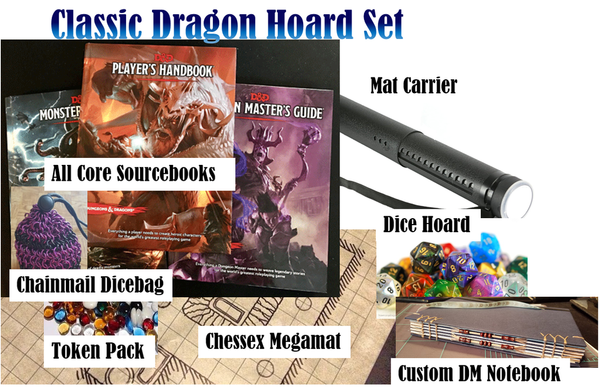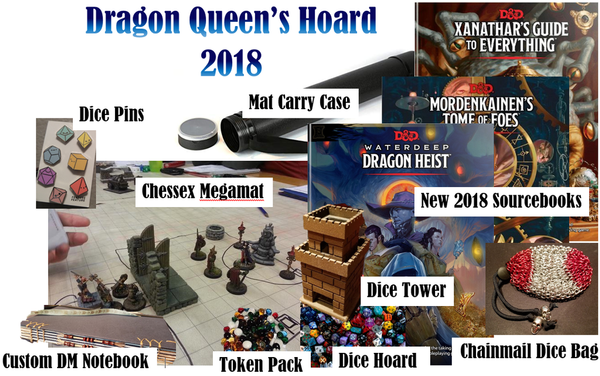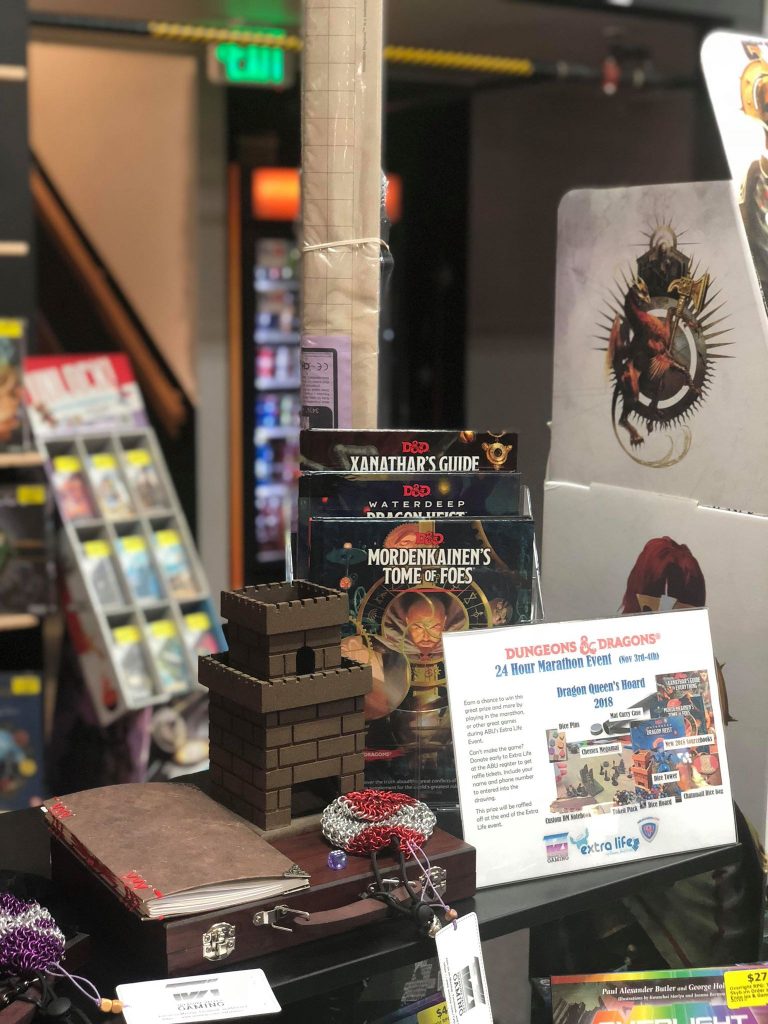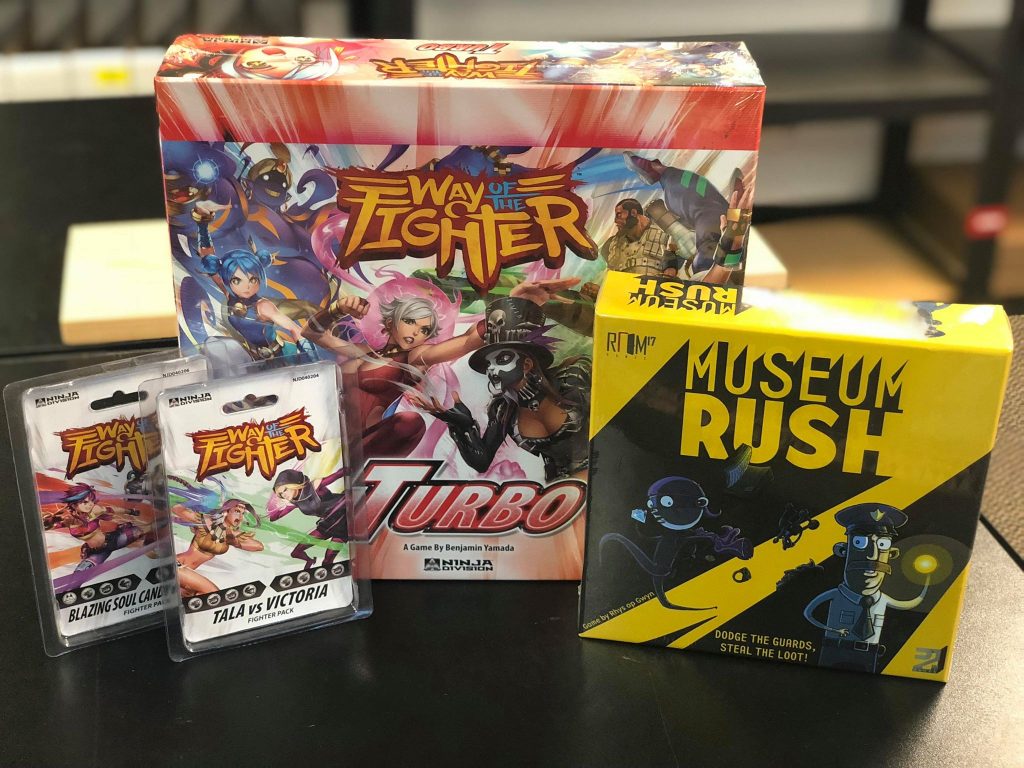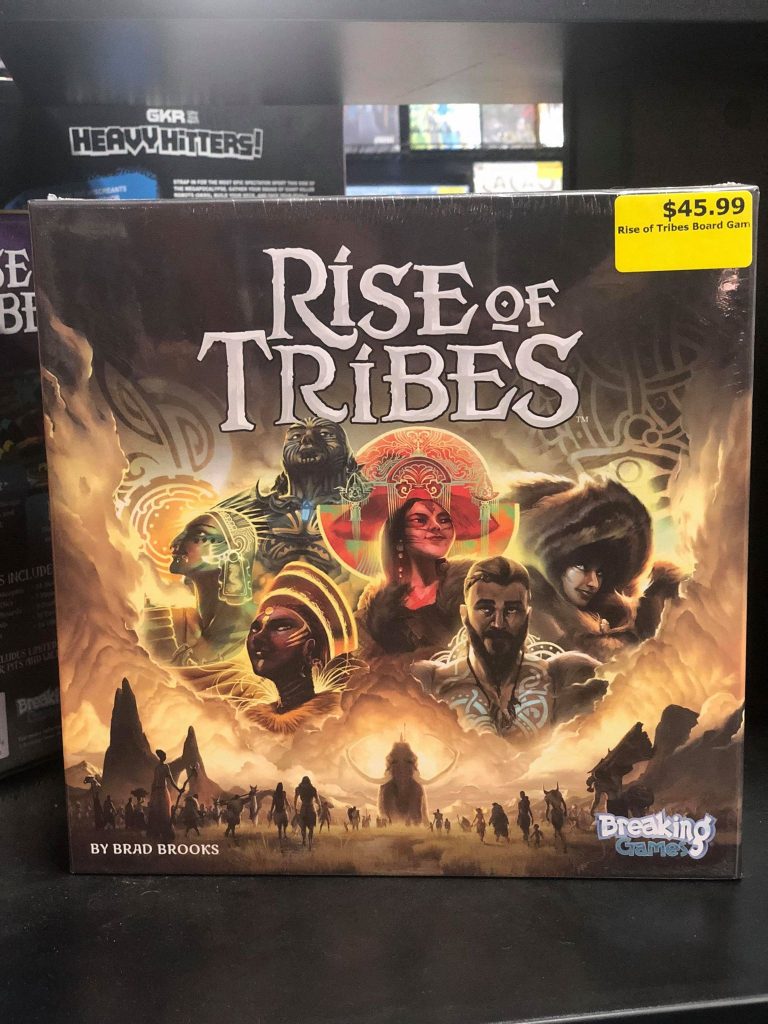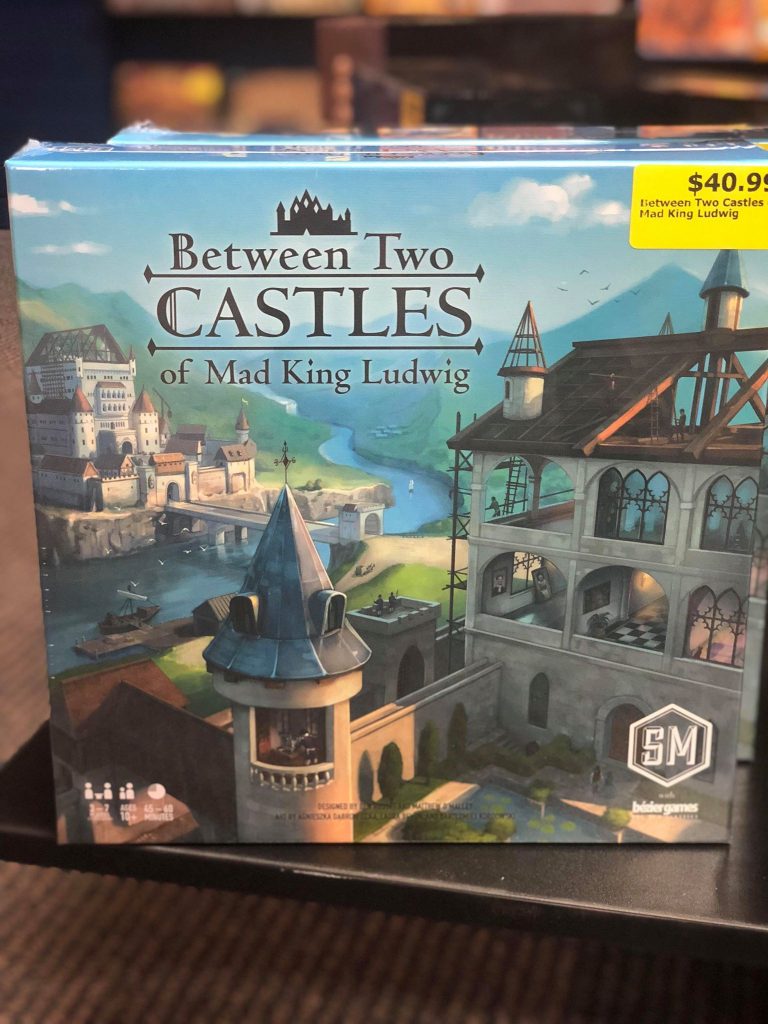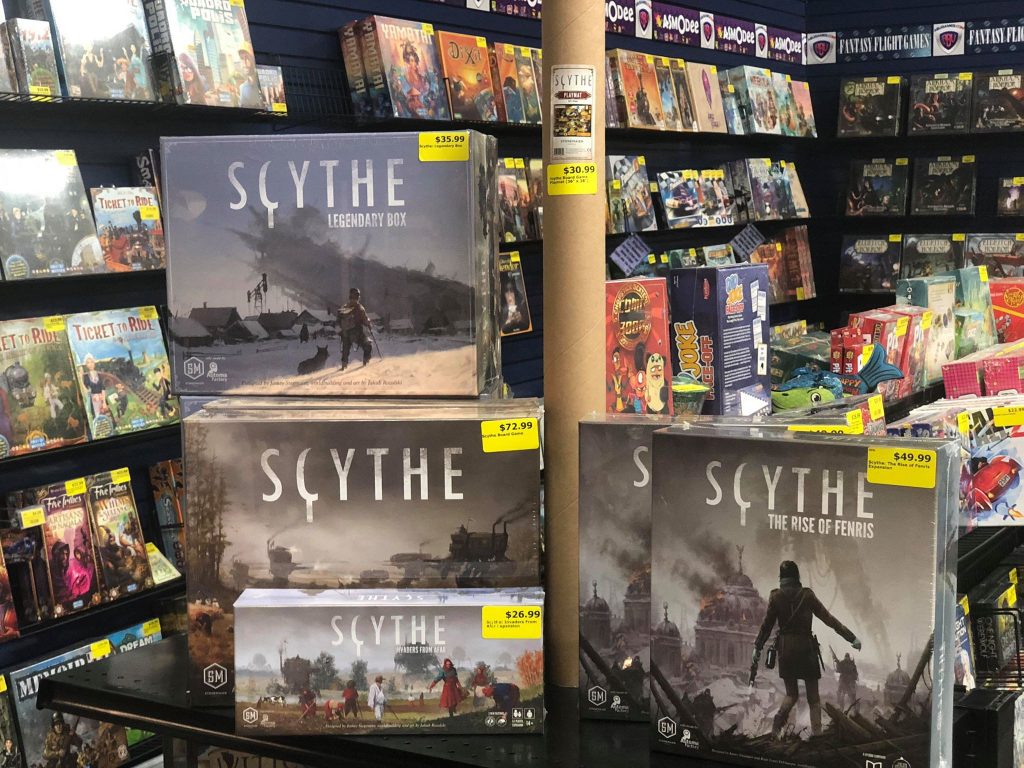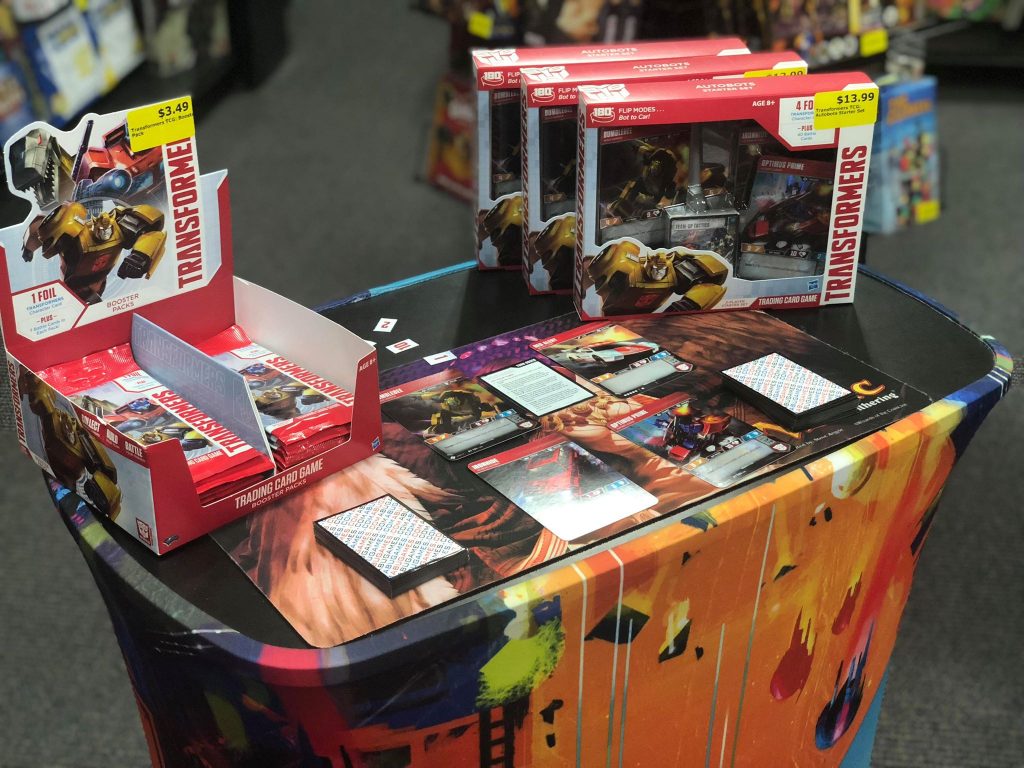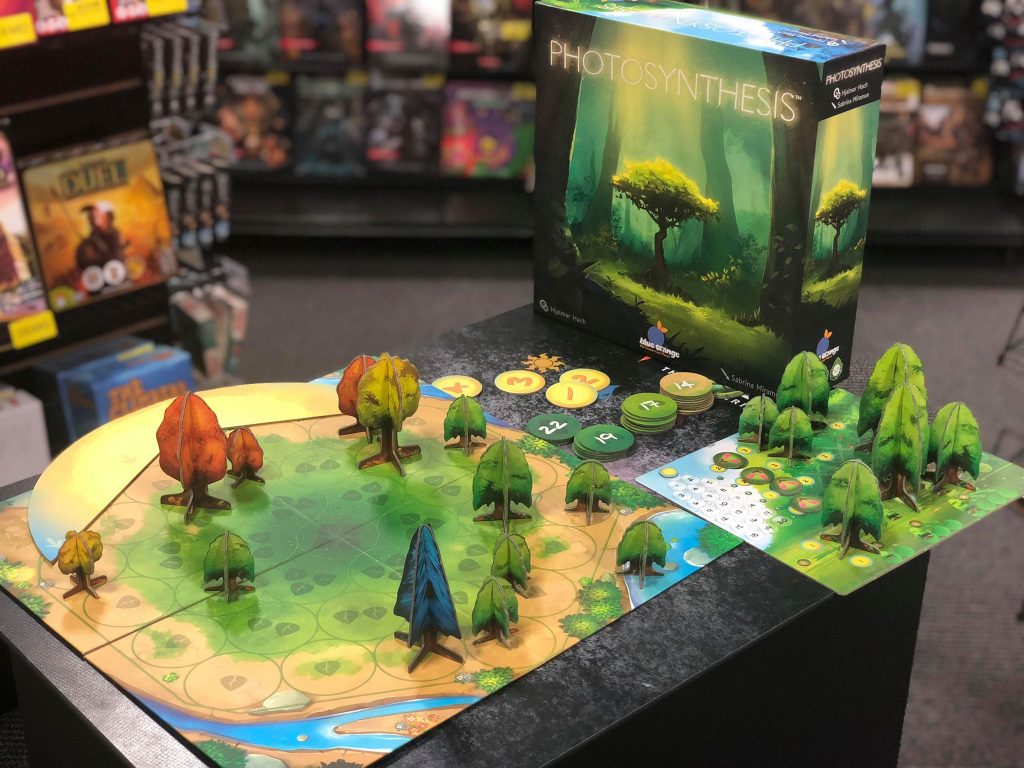What’s New This Week is a weekly post brought to you by Dane Jensen, one of our social media and marketing representatives. He showcases some of the new and restocked items we have available on our website. We show off everything from cool Magic the Gathering items all the way down to small board games. You never know what you will see on What’s New This Week!
Treasure Valley Gamers – Extra Life 2018 Sponsor
This group exists to build the gaming community in the Treasure Valley (Boise, Meridian, and more.) Whether you are a tabletop RPG gamer, a tactical war gamer, or a board gamer, we want you at a table with fellow gamers. Join us. Find your game.
Discord: https://discord.gg/VfnDtjq
Ninja Division – Extra Life 2018 Sponsor
Ninja Division brings high quality board games, card games, and party games to tabletops around the world. Ninja Division’s diverse catalog features the fan favorite party game DrunkQuest™, the anime-themed card game Tentacle Bento™, the award-winning family game Luchador™, and many other amazing products. Ninja Division also publishes new games licensed by companies such as Games Workshop and the exciting new card game; Doomseeker™. Ninja Division provides rewarding game experiences families and gamers of all ages!
– RISE OF TRIBES –
In ancient prehistoric times, you have discovered a new land with plentiful lakes, mountains and forests (and apparently many stone rocks that shall be called dice). Your people can develop new things like basketry or find oxen or simply grow and conquer.
In Rise of Tribes, players control a tribal faction in prehistoric times that’s looking to grow, move, gather, and lead their people. The board is modular, composed of hexes in various terrain types. Each turn you roll two dice, and may select from four actions. The power of your action depends on your die roll PLUS the last couple of dice on that action card. Victory is possible in a couple ways: gathering resources to build villages and/or completing development and achievement goals for your civilization.
– BETWEEN TWO CASTLES OF MAD KING LUDWIG –
The king demands a castle! You are a world-renowned master builder who has been asked by the Mad King Ludwig to help design his castles. Projects of such significance require the expertise of more than one person, so for each assignment you are paired with another master builder to execute your grandiose plans. Will your planning and collaborative skills be enough to design the most impressive castles in the world?
Between Two Castles of Mad King Ludwig is a competitive tile-drafting game in which each tile is a room in a castle. You work together with the player on your left to design one castle, and with the player on your right on another castle. On each turn you select two tiles from your hand, reveal them, then work with your partners to place them. To win, you have to share your attention and your devotion between two castles.
It is a time of unrest in 1920s Europa. The ashes from the first great war still darken the snow. The capitalistic city-state known simply as “The Factory”, which fueled the war with heavily armored mechs, has closed its doors, drawing the attention of several nearby countries.
Scythe is an engine-building game set in an alternate-history 1920s period. It is a time of farming and war, broken hearts and rusted gears, innovation and valor. In Scythe, each player represents a character from one of five factions of Eastern Europe who are attempting to earn their fortune and claim their faction’s stake in the land around the mysterious Factory. Players conquer territory, enlist new recruits, reap resources, gain villagers, build structures, and activate monstrous mechs.
Each player begins the game with different resources (power, coins, combat acumen, and popularity), a different starting location, and a hidden goal. Starting positions are specially calibrated to contribute to each faction’s uniqueness and the asymmetrical nature of the game (each faction always starts in the same place).
Scythe gives players almost complete control over their fate. Other than each player’s individual hidden objective card, the only elements of luck or variability are “encounter” cards that players will draw as they interact with the citizens of newly explored lands. Each encounter card provides the player with several options, allowing them to mitigate the luck of the draw through their selection. Combat is also driven by choices, not luck or randomness.
Scythe uses a streamlined action-selection mechanism (no rounds or phases) to keep gameplay moving at a brisk pace and reduce downtime between turns. While there is plenty of direct conflict for players who seek it, there is no player elimination.
Every part of Scythe has an aspect of engine-building to it. Players can upgrade actions to become more efficient, build structures that improve their position on the map, enlist new recruits to enhance character abilities, activate mechs to deter opponents from invading, and expand their borders to reap greater types and quantities of resources. These engine-building aspects create a sense of momentum and progress throughout the game. The order in which players improve their engine adds to the unique feel of each game, even when playing one faction multiple times.

